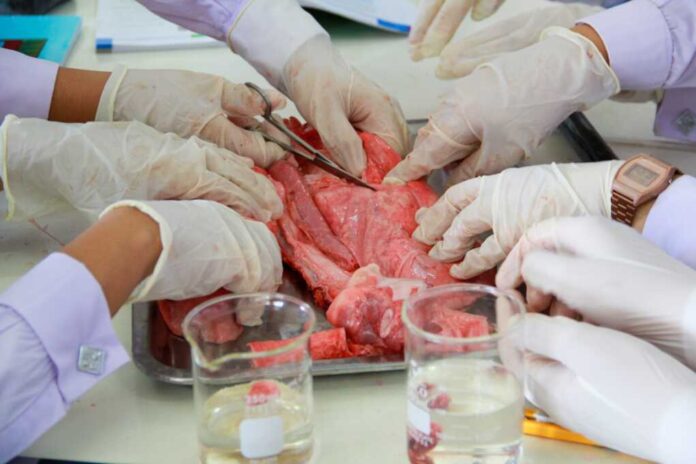
Chinese surgeons successfully transplanted a genetically modified pig lung into a brain dead human recipient, marking the first time such an organ has functioned in a human body for nine days.
Story Highlights
- First pig lung transplant in human shows nine-day functionality without hyperacute rejection
- Over 100,000 Americans await organ transplants with only 10% of global needs met
- Genetically modified pig had six alterations to reduce human immune system rejection
- Experts call results promising but not ready for living patients due to technical limitations
Breakthrough Addresses America’s Organ Crisis
The May 2024 procedure represents a significant advancement in xenotransplantation research, directly targeting a healthcare crisis that kills Americans daily. With over 100,000 people on US transplant waiting lists and 17-20 deaths occurring daily from organ shortages, this Chinese research team’s success offers hope for solving a problem that government inefficiencies and regulatory barriers have failed to address adequately.
In a world's first, Chinese surgeons transplanted a genetically modified pig lung into a brain-dead man and functioned for 9 days, according to findings published Monday in the journal Nature Medicine. pic.twitter.com/vUufJedm1Q
— China Science (@ChinaScience) August 25, 2025
Technical Achievement Shows Promise Despite Limitations
The genetically modified pig underwent six specific alterations to remove genes triggering human immune responses while adding human-compatible genes. During the nine-day monitoring period, researchers observed normal lung function without hyperacute rejection or infection. However, progressive antibody-mediated damage occurred, indicating significant immunological challenges remain before clinical application in living patients becomes viable.
Watch a report:
Expert Analysis Reveals Mixed Assessment
Dr. Justin Chan from NYU Langone Transplant Institute characterized the work as “exciting and promising” but noted it represents only a “qualified success” since the pig lungs could not independently sustain a patient. Professor Andrew Fisher from Newcastle University described it as an “incremental step forward” rather than a clinical breakthrough. These expert assessments highlight the substantial research and development required before xenotransplantation becomes a practical solution.
The lung xenotransplantation presents unique challenges compared to previous pig heart and kidney transplants. Lungs face greater exposure to environmental pathogens and possess highly active immune systems, making successful integration more complex. This complexity explains why lung transplantation has lagged behind other organ xenotransplantation attempts, despite the critical need for respiratory organ alternatives in treating end-stage lung diseases.
Future Implications for American Healthcare
This research could fundamentally transform American healthcare by reducing costs associated with chronic organ failure and eliminating the tragic loss of life from organ shortages. Success in xenotransplantation would reduce dependence on the limited human donor pool and provide alternatives when government-managed organ allocation systems fail patients. However, regulatory oversight, ethical considerations, and public acceptance will determine how quickly these innovations reach American patients who desperately need them.
Sources:
First Genetically Modified Pig Lung Transplant Research – PMC
Tackling the Organ Shortage Crisis – PGHR
Transplant Shortage Crisis Analysis – eGenesis Bio
The Organ Shortage Crisis: Are Pigs the Answer? – Health Law Policy


















